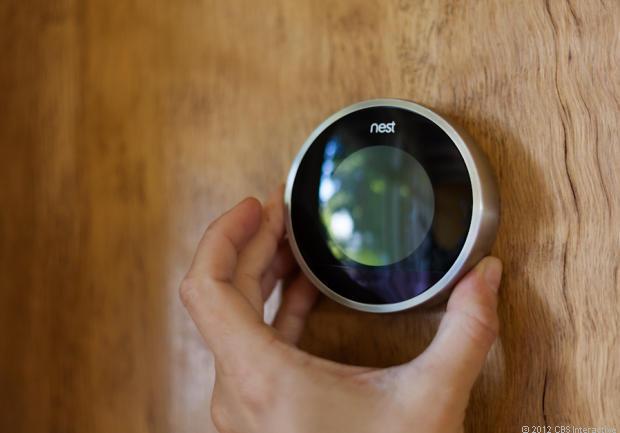One might think that the "Internet of things" (Internet of things:IoT) is a niche industry for gig only for early adapters. But Google has every reason to think that IoT will soon grow into a vast and huge industry, costing 3.2 billion dollars.
アップルがNestを買収しなかった理由を考える--グーグルとの争奪戦はあったのか?When Google announced plans to buy Nest for $3.2 billion in cash on Jan. 13, the ever-changing industry received an unprecedented bright spotlight. Nest is a manufacturer of smart thermostats, smoke and carbon monoxide detectors.
Nest Chief Executive Officer (CEO), known as the "father of iPod" Tony Fadell, told CNET of the United States: "when we first appeared two years ago, people scoffed at thermostats, and connected homes and the Internet of things did not become a topic. We changed the situation so that it first came to mind. As far as the Internet of things is concerned, we can say that we have made great achievements on this prologue. (with Google) our goal is to further change this situation. Google is a big company that can say,'We believe in these products, 'and we want to help the company achieve further success. "

Nest has been told for the past few months that he is looking for considerable venture capital, but thanks to the scope and scale of Google's proposal, he decided not to deal with venture capital. Perhaps the most important factor in this acquisition, at least for Nest, is Google's commitment not to meddle in Nest user data, as Google acknowledges that Nest operates substantially independently ("Nest will continue to be Nest").
The acquisition is generally well-intentioned. Like Frank Gillett, an analyst at Forrester Research, Google may be paying too much in the short term. "in the long run, getting things right may be seen as a wise choice. The acquisition is aimed at accumulating Google's experience in building an online service platform for connected homes. Some people think that this will enable us to support many third-party products other than Nest production. "
As Google moves into connected homes, Nest is likely to have access to resources to rule out smaller existing competition or to expand into new product categories that are now controlled by other companies in a shorter time than ever before. In the early stages, however, there don't seem to be many voices worried about this. Instead, several companies that could be Nest competitors reacted enthusiastically to the news.
The reason for consideration, Jason Johnson said, is that Google has so far been ensuring that the companies it acquires don't get an unnecessarily favourable position on existing competition in a short period of time. Johnson is the CEO of August, an intelligent lock developer.
Google seems to have some confidence that this technology will not only be a temporary success, but that connecting devices, especially day-to-day devices that have not been connected before, will be popular. These are the only markets expected to grow. "(Johnson)
LeWeb 2012で講演するNest Labsの最高経営責任者(CEO)のTony Fadell氏。提供:Stephen Shankland/CNET